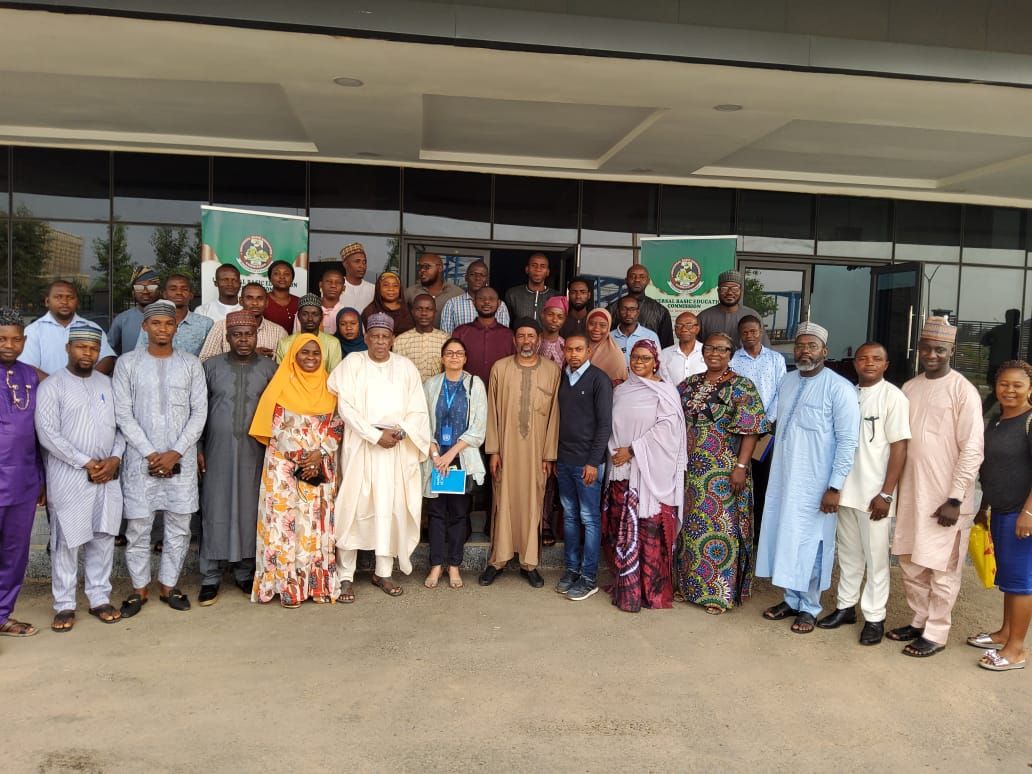FG using digital tech to revolutionize basic education — UBEC boss

Transforming Basic Education in Nigeria Through Digital Innovation
The Universal Basic Education Commission (UBEC) has been making significant strides in transforming basic education in Nigeria by integrating digital technology into the learning process. The Executive Secretary of UBEC, Aisha Garba, highlighted that the commission is leveraging modern tools to ensure that public schools in the country can compete on a global scale. This initiative has been made possible through collaboration with international partners, including the Korean government, which has played a pivotal role in redefining the educational landscape.
Garba emphasized that the partnership with the Korea International Cooperation Agency (KOICA) has led to remarkable achievements. As part of the $10 million funded KOICA-Nigeria Smart Education Project, 37 smart schools have been established across all states and the Federal Capital Territory (FCT). Of these, 21 are already operational, while efforts continue to launch academic activities in the remaining 16 schools. This project has already benefited over 8,000 learners in 21 states where the smart schools are fully functional.
Before the project began in 2021, Nigeria faced several challenges in its education system. Over 10.1 million school-age children were out of school, and more than 70% of those enrolled lacked foundational learning skills. Additionally, over 60% of public primary school teachers did not possess basic digital literacy. Garba acknowledged these challenges but also pointed out the opportunities they presented for reimagining education and bridging the digital divide.
Through strategic partnerships, UBEC has achieved several milestones. These include the development of Nigeria’s first Smart Education Master Plan, the training of over 300 teachers and school leaders, and the establishment of six world-class Content Development Studios. Nearly 4,000 digital learning contents in Mathematics and Science have also been created. In addition, UBEC has built 37 UBE Model Smart Schools, with six of them receiving support from KOICA.
Garba expressed satisfaction with the outcomes of the project, noting that it has touched the lives of many students and reshaped their futures. She emphasized that the commission is not just talking about change but actively executing reforms to transform basic education.
Infrastructure and Teacher Development
The collaboration between UBEC and KOICA has resulted in significant infrastructure investments in the six pilot schools supported by the Korean government. Each of these schools is equipped with state-of-the-art Content Development Studios (CDS), enabling teachers to create real-world applicable digital content for their students.
Deputy Executive Secretary of UBEC (Technical), Mr Razaq Akinyemi Olajuwon, highlighted the project's impact on teacher capacity. He noted that the initiative has enhanced the use and development of ICT content, improved access to quality information and communication technology teaching materials, and transformed classroom environments.
Country Director of KOICA, Eunsub Kim, represented by manager David Nkwa, explained that the project uses a blended learning approach, shifting classrooms from teacher-centered to student-centered learning. Over the past five years, this initiative has significantly improved the quality of education in Nigeria, particularly in basic education. While the national curriculum remains unchanged, teaching methods and delivery have been reimagined to boost learner engagement and outcomes.
Kim noted that students from smart schools have performed better, especially in Mathematics and science subjects, compared to students from other schools. He emphasized that the project was designed to improve learning outcomes, and this goal has been achieved so far.
Sustainability and Future Expansion
Professor Dae Joon Hwang, Project Manager of the UBION Consortium, stressed the importance of sustainability and called for greater parental and community involvement in the project. He assured that the second phase, which aims to expand the model to 37 smart schools nationwide, will begin soon.
The success of the project has already had a measurable impact on the education sector. Since Garba assumed her position, UBEC has removed long-standing bottlenecks, allowing states to access resources efficiently and transparently. This has led to the distribution of over 420,009 library materials, more than 158,000 Nigerian History books, 740 interactive smart boards, 250 desktop computers for girls’ alternative high schools, and 140 talking computers for learners with special needs.
These efforts highlight the commitment of UBEC and its partners to creating a more inclusive and effective education system in Nigeria. By embracing technology and innovative teaching methods, the commission is paving the way for a future where public schools can compete globally and provide quality education to all students.

Comments
Post a Comment